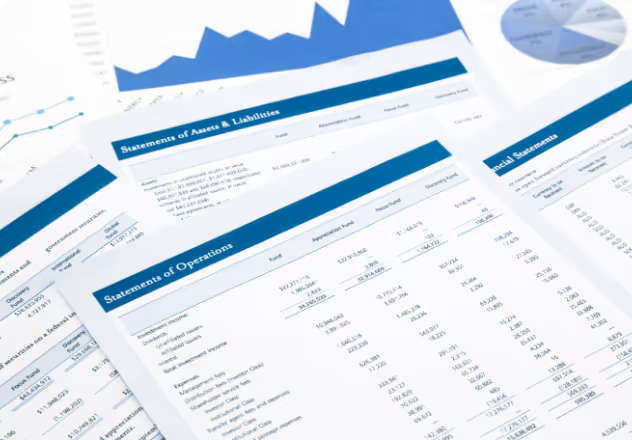tax regime
1. Changes in Tax Rates:
No changes have been prescribed with respect to the tax rates and slab limit of the Individuals/HUF under the old tax regime.
Tax rates and slab limits for the Individuals/HUF under the new tax regime (section 115BAC of the IT Act) have been revised as under:
2. Increase in the Rebate under section 87A of the IT Act:
The total income for rebate under section 87A of the IT Act has been proposed to be enhanced from INR 7,00,000 to INR 12,00,000. Consequently, rebate limit under new regime of income tax for individuals is proposed to be increased from INR 25,000 to an aggregate amount of INR 60,000. This will effectively result in nil taxation for individual tax payers having total income up to INR 12,00,000.
It has been also proposed that no rebate undersection 87A of the IT Act shall be allowed against the income computed under special rates.
This amendment will take effect from 1stApril 2025.
Relaxation in the provisions of self occupied house property
Existing Provision:
Section 23(2) of the IT Act provides that where a house property is in the occupation of the owner for the purposes of his residence or owner cannot actually occupy it due to his employment, business or profession carried on at any other place, in such cases, the annual value of such house property shall be taken to be nil. Further, section 23(4) of the IT Act limits this benefit up to two house properties only, which are to be specified by the owner.
Proposed Amendment:
It has been proposed to amend section 23(2) of the IT Act by removing the specific requirement that non-occupation of the house property must be due to reason of employment, business or profession at another location. Thus, the proposed amendment provides the annual value to be nil, if the owner occupies the property or is unable to occupy it for any reason.
This amendment will take effect from 1st April, 2025.
Impact:
This proposed amendment will provide greater flexibility to taxpayers, enabling them to claim nil annual value for up to two self-occupied properties without needing to justify the reason for non-occupation.
Amendment of definition of Capital Asset – Income from transfer of securities by Category I and II AIF to be treated as capital gains
Existing provision:
Section 2(14) of the IT Act defines the term “capital asset” to include property of any kind held by an assessee, whether or not connected with his business or profession, but does not include any stock-in-trade or personal assets as provided in the definitions.
The definition of capital asset is crucial as it delineates the scope of assets that are subject to capital gains tax.
The securities held by a Foreign Institutional Investor which has invested in such securities in accordance with the regulations made under the Securities and Exchange Board of India Act, 1992 (15 of 1992) are defined as capital assets.
However, there was no clarity on the characterisation of income arising from transaction in securities held by investment funds (specified in clause(a) of Explanation 1 to section 115UB in the IT Act, i.e. Category I and Category II Alternate Investment Fund) as to whether it is capital gain or business income.
Proposed amendment:
With a view to provide clarity in respect of the above, the definition of capital asset has been proposed to be amended to include the security held by investment funds referred to in section 115UB of the IT Act which has invested in such securities in accordance with the regulations made under the Securities and Exchange Board of India Act, 1992. This amendment will take effect from 1stApril 2025.
Impact:
The income arising from the transfer of capital asset, being securities held by Category I and Category II Alternate Investment Fund as referred to in Section 115UB of the IT Act would be treated as ‘Income from Capital Gains’.
Carry Forward of Losses in case of amalgamation restricted to an overall period of 8 years
Existing provision:
Section 72A and 72AA of the IT Act provides that accumulated business loss and unabsorbed depreciation of the amalgamating entity or predecessor entity shall be deemed to be the loss of the amalgamated entity or the successor entity for the previous year in which amalgamation or business reorganisation has been effected or brought into force.
Further, section 72 of the IT Act provides that no loss (other than loss from speculation business) under the head “Profits and gains from business or profession” shall be carried forward for more than 8 assessment years immediately succeeding the assessment year for which the loss was first computed.
Proposed amendment:
In order to bring parity with section 72 of the IT Act, it has been proposed to amend section 72A and section 72AA of the IT Act to provide that any loss forming part of the accumulated loss of the predecessor entity, which is deemed to be the loss of the successor entity, shall be eligible to be carried forward for not more than eight assessment years immediately succeeding the assessment year for which such loss was first computed for original predecessor entity.
This amendment shall apply to any amalgamation or business re-organisation which is effected on or after 1st April, 2025.
Impact:
The accumulated losses of the predecessor entity which is allowed to be carried forward and set-off by the successor entity pursuant to amalgamation or business re-organisation will be allowed only for the remaining years out of 8 years and not for the fresh period of 8 years.
Extension of tax benefits for Eligible start-ups undersection 80-IAC of the IT Act
Existing Provision:
Section 80-IAC of the IT Act provides a deduction of 100% of the profits and gains derived from an eligible business by an eligible start-up for 3 consecutive assessment years out of 10 years beginning from the year of incorporation of eligible startup, at the option of the Assessee, if the start-up is incorporated on or after 1st April, 2016 but before 1st April, 2025.
Proposed amendment:
It has been proposed to extend the benefit of this section for another 5 years i.e., the benefit will be available to eligible start-ups incorporated on or before 31st March, 2030.
Impact:
Eligible start-ups incorporated on or before 31stMarch, 2030 will be eligible to claim the deduction available under section 80-IAC of the IT Act.
Removal of TCS provisions on sale of goods
Existing Provision:
Section 194Q of the IT Act provides that any person being a buyer, is required to deduct tax at the rate of 0.1%, on payment made to a resident seller, for the purchase of any goods of the value or aggregate of value exceeding INR 50 Lakhs in any previous year.
Section 206C(1H) of the IT Act provides that any person being a seller, who receives consideration for sale of any goods of the value or aggregate of value exceeding INR 50 lakhs in any previous year, is required to collect tax from the buyer at the rate of 0.1% of the sale consideration exceeding INR 50 lakhs.
Additionally, section 206C(1H) of the IT Act provides that if the buyer is liable to deduct TDS under any other provision of IT Act on the goods purchased from the seller and has deducted such amount, then provision of section 206C(1H) of the IT Act will not be applicable.
Proposed Amendment:
It has been proposed that provisions of sub-section (1H) of section 206C of the IT Act will not be applicable from 1stApril, 2025.
Impact:
It was difficult for the seller to check whether the buyers have ensured the compliance of TDS deduction under 194Q of the IT Act or not, resulting in both TDS and TCS being made applicable on the same transaction. Therefore, to facilitate ease of doing business and reduce compliance burden on the taxpayers, it is proposed to abolish the provisions of Section 206C(1H) of the IT Act.
The definition of "goods" under the Sale of Goods Act, 1930 includes shares, thereby resulting in applicability of these provisions to the transactions involving sale and purchase of shares. The proposed amendment is expected to reduce compliance burden on share transfer transactions.
Removal of higher TDS/TCS for non-filers of return of income
Existing Provision:
Section 206AB and 206CCA of the IT Act, requires tax to be deducted/collected (TDS/TCS) at higher rates when the deductee/collectee, as the case may be, is a non-filer of income-tax return, subject to other conditions specified in the section.
Background:
In the above case, it was difficult for the deductor/collector at the time of deduction/collection to verify whether returns have been filed by the deductee/collectee or not, resulting in application of higher rates of deduction/collection, blocking of capital and increased compliance burden.
Proposed Amendment:
To address the above issue and reduce compliance burden for the deductor/collector, it has been proposed to omit section 206AB and 206CCA of the Act. This amendment will take effect from 1st April, 2025.
Increase in threshold limit for applicability of the TDS provisions
TDS provisions have various thresholds of amount of payment or amount of income, beyond which tax is required to be deducted. To reduce compliance burden on tax payers, it has been proposed to increase these thresholds as below:
193 - Interest on Securities
194A - Interest other than Interest on Securities
i) INR 50,000 for senior citizen
ii) INR 40,000 in case of others when payer is bank, cooperative society, and post office
iii) INR 5,000 in other cases
(i) INR 1,00,000 for senior citizen
(ii) INR 50,000 in case of others when payer is bank, cooperative society and post office
iii) INR 10,000 in other cases
194 - Dividend for an individual shareholder
194K - Income in respect of units of a mutual fund or specified company or undertaking
194B - Winnings from lottery, crossword puzzle, etc.
Aggregate of amounts exceeding INR 10,000 during the financial year
INR 10,000 in respect of a single transaction
194BB - Winnings from horserace
Aggregate of amounts exceeding INR 10,000 during the financial year
INR 10,000 in respect of a single transaction
194D - Insurance Commission
194G - Income by way of commission, prize etc. on lottery tickets
194H - Commission or Brokerage
INR 2,40,000 during the financial year
INR 50,000/- per month or part of a month
194J - Fee for professional or technical services
194LA - Income by way of enhanced compensation
New Income tax bill
A new Income Tax Bill is proposed to be introduced in the Budget session. The new bill is proposed to be clearer and approximately 50% shorter than the current law in terms of both chapters and words. The stated objective of the new Income Tax Bill is to make income tax laws simple to understand for taxpayers and tax administrators, leading to tax certainty and reduced litigation.
About the Author (s)
Co-Founder & Partner
M&A Tax & Regulatory
Co-Founder & Partner
M&A Tax & Regulatory































